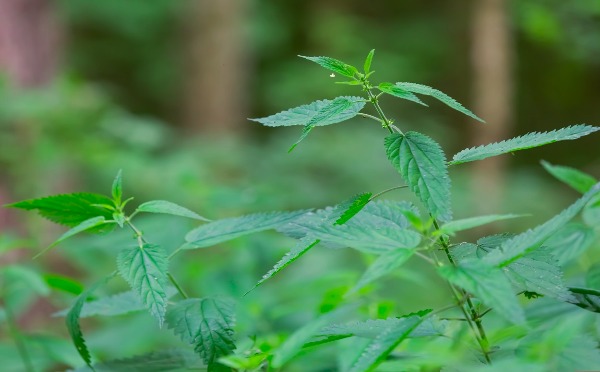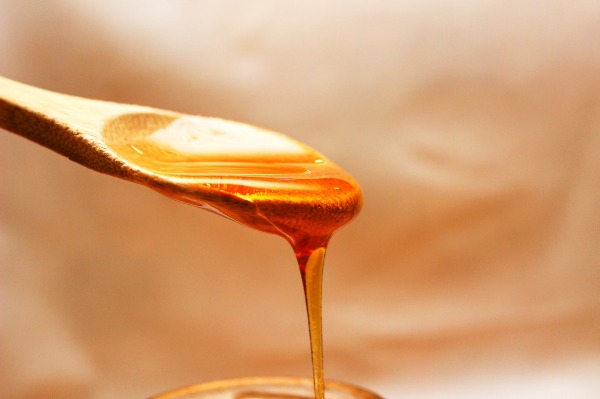Living in the Willamette valley I’m constantly seeing people, many of them children, who suffer from seasonal allergies. Runny noses, itchy eyes, sneezing, postnasal drip and coughs are the most common allergy symptoms and, boy, can they make life miserable! With my patients and my family, I like to work on balancing the immune system all year, not just during allergy season. Decreasing inflammation through diet and gut health is a great way to address immune balance throughout the year. While it’s always the best bet to work on immune balance year-round, there are plenty of natural things that can help beat those allergy symptoms when they hit:
- Cleaning Your Home- While we can’t control the pollen in the outside air, we can minimize its presence in our home. Using quality air filters that remove pollen from the inside air can really help those suffering from seasonal allergies. When coming in from time outside be sure to wipe pollen from your face and wash it from hands. Sometimes the pollen counts are so high here, I recommend changing clothes when coming inside as well. Keeping hair and bedding clean from pollen also helps reduce allergic symptoms.
- Nettles- Nettles have been used for allergies for centuries. In a study of 69 allergy suffers, 57% of patients rated nettles as effective in relieving allergic runny nose, and 48% said that nettles were more effective than allergy medications they had used previously after one week of use. (1) Researchers think that may be due to nettle’s ability to reduce the amount of histamine the body produces in response to an allergen. (2)

- Vitamin C- Vitamin C acts as a natural antihistamine as it inhibits the release of histamine from white blood cells. Vitamin C acts as a natural anti-histamine. (3) In a study from 2004, intranasal vitamin C solution was compared to placebo for allergic rhinitis (runny nose from allergies). After two weeks, 74 percent of the intranasal vitamin C users experienced a decrease in nasal secretions, blockage and swelling compared to the 24 percent improvement in the placebo group. (4) A more recent study from 2013 showed that children aged 6-12 years old experienced less allergic symptoms with increased vitamin C consumption. (5)
- Quercetin- Quercetin is a flavonoid that is abundant in plants and has several anti-inflammatory actions. Quercetin inhibits cyclooxygenase and lipoxygenase which decreases the leukotrienes and prostaglandins associated with allergic symptoms. Quercetin also promotes mast cell stabilization which inhibits the release of histamine. (6-8) In a study from Japan, quercetin significantly inhibited histamine release in individuals with seasonal allergic rhinitis. Researchers found that quercetin’s effect was almost twice that of sodium cromoglicate at the same concentration. (9) Quercetin is highest in capers, onions and elderberry.
- Local Honey- I often recommend local honey for short and long term seasonal allergy control. A recent study from 2013 showed that honey ingestion resulted in an improvement in an irritated, congested, Itchy, or runny nose from seasonal allergies. (10) In a study published in 2011 in the International Archives of Allergy and Immunology researchers found that allergy suffers using pre-seasonal birch pollen honey reported a 60 percent lower total symptom score, twice as many asymptomatic days, and 70 percent fewer days with severe symptoms. Pre-seasonal honey users also used 50 percent less antihistamines compared to the control group that took conventional medicines. (11)

- Diet and Lifestyle Tune Up– Creating a lifestyle that decreases inflammation by optimizing diet, sleep and exercise is also critical to short and long-term allergy prevention. A diet rich in fresh vegetables, fruits and spices help steer the immune system away from allergies. (12) Getting enough omega-3 fatty acids from fish, walnuts, chia or flax seeds also helps tip the immune balance away from allergies. (13) Making sure your diet is rich in probiotics, whether from food or supplements or both, is also a great way to reduce allergy symptoms. (14)
Seasonal allergies can be miserable, especially for children, but there are things that can be done to minimize the symptoms of allergies. Talk to your healthcare provider today about whether these ideas might help your family during allergy season.
-Dr. Catherine Clinton ND
References:
(1) Mittman P. Randomized, double-blind study of freeze-dried Urtica dioica in the treatment of allergic rhinitis. Planta Med. 1990 Feb;56(1):44-7.
(2) Roschek B Jr, Fink RC, McMichael M, Alberte RS. Nettle extract (Urtica dioica) affects key receptors and enzymes associated with allergic rhinitis. Phytother Res. 2009 Jul;23(7):920-6. doi: 10.1002/ptr.2763.
(3) Hagel AF et al. Intravenous infusion of ascorbic acid decreases serum histamine concentrations in patients with allergic and non-allergic diseases. Naunyn Schmiedebergs Arch Pharmacol. 2013 Sep;386(9):789-793.
(4) Podoshin L, Gertner R, Fradis M.Treatment of perennial allergic rhinitis with ascorbic acid
solution. Ear Nose Throat J 1991;70:54-55.
(5) Seo JH et al. Association of antioxidants with allergic rhinitis in children from Seoul. Allergy Asthma Immunol Res. 2013 Mar;5(2):81-87.
(6) Middleton E, Jr. Effect of plant flavonoids on immune and inflammatory cell function. Adv Exp Med Biol. 1998;439:175-182.
(7) Min YD et al. Quercetin inhibits expression of inflammatory cytokines through attenuation of NF-κB and p38 MAPK in HMC-1 human mast cell line. Inflam Res. 2007;56(5):210-215.
(8) Sakai-Kashiwabara M, Asano K. Inhibitory action of quercetin on eosinophil activation in vitro. Evid Based Complement Alternat Med. 2013;2013:127105.
(9) Mlcek J, Jurikova T, Skrovankova S, Sochor J. Quercetin and Its Anti-Allergic Immune Response. Molecules. 2016 May 12;21(5). pii: E623. doi: 10.3390/molecules21050623.
(10) Asha’ari ZA, Ahmad MZ, Jihan WS, Che CM, Leman I. Ingestion of honey improves the symptoms of allergic rhinitis: evidence from a randomized placebo-controlled trial in the East coast of Peninsular Malaysia. Ann Saudi Med. 2013 Sep-Oct;33(5):469-75. doi: 10.5144/0256-4947.2013.469.
(11) Saarinen K, Jantunen J, Haahtela T. Birch pollen honey for birch pollen allergy–a randomized controlled pilot study. Int Arch Allergy Immunol. 2011;155(2):160-6. doi: 10.1159/000319821. Epub 2010 Dec 23.
(12) Nurmatov U, Devereux G, Sheikh A. Nutrients and foods for the primary prevention of asthma and allergy: systematic review and meta-analysis. J Allergy Clin Immunol. 2011 Mar;127(3):724-33.e1-30. doi: 10.1016/j.jaci.2010.11.001. Epub 2010 Dec 24.
(13) Van den Elsen LWJ, Nusse Y, Balvers M, Redegeid FA, Knol EF, Garssen J, Willemsen LEM. n-3 long-chain PUFA reduce allergy-related mediator release by human mast cells in vitro via inhibition of reactive oxygen species. Br J Nutr. 2013
(14) Park B-K, Park S, Park J-B, Park MC, Min TS, Jin M. Omega-3 fatty acids suppress Th2-associated cytokine gene expressions and GATA transcription factors in mast cells. J Nutr Bioch 2012
(15) Jun Miyata, Makoto Arita. Role of omega-3 fatty acids and their metabolites in asthma and allergic diseases. Allergology International, Volume 64, Issue 1, January 2015, Pages 27-34.
(16) Güvenç I, Muluk N, Mutlu FŞ, Eşki E, Altıntoprak N, Oktemer T, Cingi C. Do probiotics have a role in the treatment of allergic rhinitis? A comprehensive systematic review and meta-analysis. Am J Rhinol Allergy. 2016 Sep 1;30(5):157-175.
